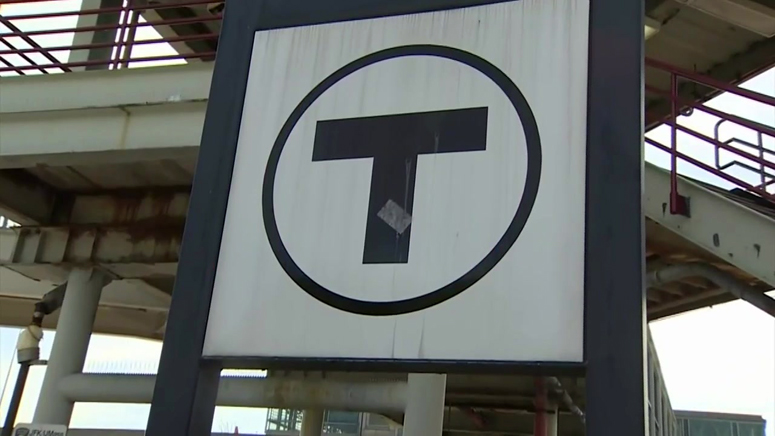After receiving more than $1 billion in federal pandemic aid and with another batch likely on the way, the multi-year financial outlook at the MBTA remains strained.
The fiscal 2022 budget up for debate this month should land in the black as a result of several injections of stimulus funding, boosted state sales tax revenue and trimmed spending.
However, projections crafted by the T for the coming years forecast that the transit agency will face budget gaps of hundreds of millions of dollars for at least four straight years, driven both by structural deficits and doubts about how quickly fare revenue will rebound from COVID-era lows.
Depending on the arc ridership takes as Massachusetts moves into a vaccinated post-pandemic reality, annual shortfalls from fiscal 2023 to fiscal 2026 all land between $201 million and $495 million in the T’s latest five-year presentation.
For perspective, the T’s budget for the current fiscal year is just under $2.3 billion.
“Obviously, these slides are some challenging numbers,” MBTA General Manager Steve Poftak told reporters Monday morning. “But what I want folks to take away from this as well is: we have positioned the MBTA with the resources to make it through the short and medium term and to give us the time not only to plan for the long term, but also to understand what the long term is actually going to be.”
The MBTA Fiscal and Management Control Board plans Monday to discuss service levels and potential changes for the summer and fall after approving a package of controversial cuts in December, which eliminated 20 bus routes, trimmed frequency on subways, halted weekend service on several commuter rail lines, and shuttered some ferries.
Those changes should net $21 million in savings by the end of the current fiscal year on June 30, officials said Monday, placing a specific figure on the impacts of the cuts for the first time.
Poftak on Monday morning did not indicate whether he supports further adjustments to service levels based on the budget outlook, saying that he did not want to preempt the board’s afternoon conversation.
“From my read of these pro forma projections, I’m hopeful that this somewhat puts to rest the notion that because the T has received money from the federal government, we therefore should be trying to maximize the level of service in the short term,” Poftak said.
The MBTA received about $827 million from the CARES Act last March, which it exhausted to plug holes in the fiscal 2020 and fiscal 2021 budgets. It received about $301 million from another stimulus package approved in December, and most of that money will go toward replenishing the capital budget that was raided to cover the deficit rather than toward restoring cut services.
Transit agencies across the United States are in line for another major burst of aid under the $1.9 trillion package that Congress approved last week, which includes about $30 billion to support public transit. MBTA officials said they will not know for several weeks how much money the T will receive in the latest allotment.
Altogether, the MBTA will likely end fiscal 2021 with $365 million set aside to help close the budget gap in fiscal 2022, according to chief financial officer Mary Ann O’Hara.
Fare revenue traditionally represented about a third of the MBTA’s annual funding, so the sudden decline in ridership amid the pandemic sliced a deep hole into its finances. A year into the crisis, only about 30 percent as many riders are using the T as before COVID-19 hit.
The five-year projections do not expect a full recovery soon. Even in the most optimistic of three scenarios modeled, fare revenues in fiscal 2026 are still lower than what the T collected in fiscal 2019.
Legislative leaders have been unable to find agreement across the two branches on any large-scale changes to how the state supports the MBTA. Some lawmakers and activists continue to push, though, for raising and allocating more money to state transportation and transit needs.
Asked if the crisis has prompted any reassessment of whether fare revenue should remain such an integral part of the budget, Poftak replied that the T has implemented some pilots to explore different fare structures.
“It is an integral part of our revenue stream, and I would be very cautious about any discussion that would jeopardize that,” he said, later adding, “It’s not something that the MBTA can do without.”
Poftak has been vocal alongside peers at other transit agencies in the push for federal aid. He said he felt the federal government was the “appropriate venue” to seek support rather than Beacon Hill given the pandemic’s impacts on state and municipal governments.
Both Poftak and Acting Transportation Secretary Jamey Tesler said Monday that the T has not implemented changes as dramatic as other agencies. So far, they said, the MBTA has not cut any personnel like others have.
“This is an industry-wide transit challenge that we’re all facing due to the disruption of the pandemic and the uncertainty ahead,” Tesler said. “It’s important to understand that this is not a unique-to-the-MBTA problem, but one that the industry itself is all confronting together.”
(Copyright (c) 2024 State House News Service.

